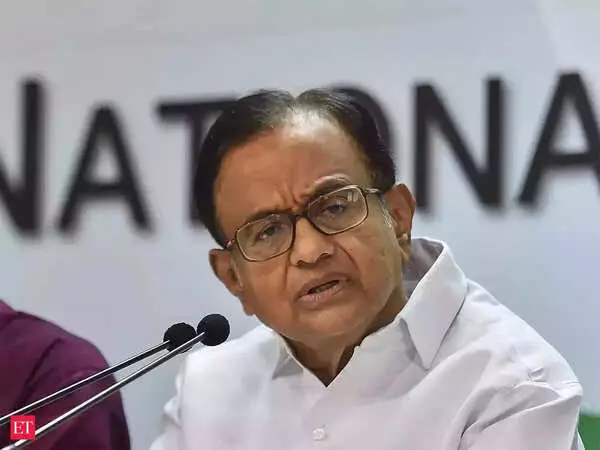
Chidambaram questions Law Commission's recommendations on sedition law
text_fieldsNew Delhi: P Chidambaram, a senior member of the Congress, claimed on Saturday that the panel's recommendation is an example of the "doctor prescribing a cure that is worse than the disease" as the law commission is in backing of the sedition law. A harsh law in the statute book is an invitation for the authorities to abuse it, according to the former home minister, and this claim has been amply proved by events.
Chidambaram's assertion comes after the law commission backed the penal provision for the offence of sedition, saying repealing it altogether can have serious adverse ramifications for the country's security and integrity.
The commission has recommended enhancing the jail term in sedition cases from a minimum of three years to seven years, contending that it would allow the courts greater room to award punishment in accordance with the scale and gravity of the act committed.
In a tweet, Chidambaram said the recommendation of the Law Commission that examined the validity and relevance of section 124A (sedition) of the Indian Penal Code (IPC) is a "case of the doctor prescribing a cure that is worse than the disease".
"When the clamour is to repeal Sec 124A, the Law Commission has recommended that the punishment may be made more stringent (3 years to 7 years)," he said.
A draconian law in the statute book is an invitation to the rulers to misuse it, Chidambaram said, adding that this hypothesis has been proved many times over.
"It is sad to notice how far removed are some judges and ex-judges from the real world," the Congress leader said.
In a report on the "Usage of the Law of Sedition", the commission has said its earlier report had termed the punishment for section 124A of the IPC "very odd" as it has provisions for either life imprisonment or a three-year jail term but nothing in between. The minimum punishment under the Sedition law is paying a fine amount.
Section 124A of the IPC is currently under abeyance following directions of the Supreme Court issued in May 2022.
With PTI inputs























